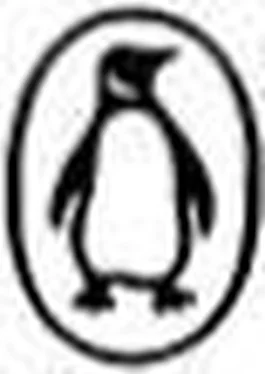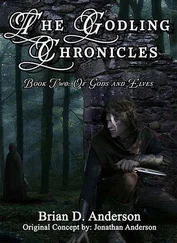Davidson, H. - Gods and Myths of Northern Europe
Здесь есть возможность читать онлайн «Davidson, H. - Gods and Myths of Northern Europe» весь текст электронной книги совершенно бесплатно (целиком полную версию без сокращений). В некоторых случаях можно слушать аудио, скачать через торрент в формате fb2 и присутствует краткое содержание. Жанр: Старинная литература, на английском языке. Описание произведения, (предисловие) а так же отзывы посетителей доступны на портале библиотеки ЛибКат.
- Название:Gods and Myths of Northern Europe
- Автор:
- Жанр:
- Год:неизвестен
- ISBN:нет данных
- Рейтинг книги:5 / 5. Голосов: 1
-
Избранное:Добавить в избранное
- Отзывы:
-
Ваша оценка:
- 100
- 1
- 2
- 3
- 4
- 5
Gods and Myths of Northern Europe: краткое содержание, описание и аннотация
Предлагаем к чтению аннотацию, описание, краткое содержание или предисловие (зависит от того, что написал сам автор книги «Gods and Myths of Northern Europe»). Если вы не нашли необходимую информацию о книге — напишите в комментариях, мы постараемся отыскать её.
Gods and Myths of Northern Europe — читать онлайн бесплатно полную книгу (весь текст) целиком
Ниже представлен текст книги, разбитый по страницам. Система сохранения места последней прочитанной страницы, позволяет с удобством читать онлайн бесплатно книгу «Gods and Myths of Northern Europe», без необходимости каждый раз заново искать на чём Вы остановились. Поставьте закладку, и сможете в любой момент перейти на страницу, на которой закончили чтение.
Интервал:
Закладка:
PENGUIN BOOKS
GODS AND MYTHS OF NORTHERN EUROPE
Hilda Ellis Davidson studied Anglo-Saxon and Old Norse under the Chadwicks at Newnham College, Cambridge, where she took Firsts in English Literature and what was then known as Archaeology and Anthropology. She received her Ph.D. in 1940 for a thesis on beliefs about the dead in Old Norse literature. She lectured in English Language and Literature at Royal Holloway College and Birkbeck College in the University of London, and was elected a Fellow of the Society of Antiquaries in 1950. In 1973 she became a Fellow of Lucy Cavendish College, Cambridge, where she was Vice-President from 1975 until 1980. She was President of the Folklore Society from 1973 to 1976, and General Editor of the nineteen Mistletoe Books published between 1974 and 1984. She is married, with two children and ten grandchildren, and lives in Cambridge.
Hilda Davidson’s other publications include The Road to Hel (1943), The Sword in Anglo-Saxon England (1962; 1994), The Viking Road to Byzantium (1976), Patterns of Folklore (1978), Commentary on Books I–IX of Saxo Grammaticus (1980), Katherine Briggs, Storyteller (1986), Myths and Symbols in Pagan Europe (1988), The Lost Beliefs of Northern Europe (1993), and numerous articles in books and periodicals. She continues to work on the pre-Christian religion and folklore of north-western Europe.
H. R. Ellis Davidson
Gods and Myths of Northern Europe

Penguin Books
PENGUIN BOOKS
Published by the Penguin Group
Penguin Books Ltd, 80 Strand, London WC2R 0RL, England
Penguin Putnam Inc., 375 Hudson Street, New York, New York 10014, USA
Penguin Books Australia Ltd, 250 Camberwell Road, Camberwell, Victoria 3124, Australia
Penguin Books Canada Ltd, 10 Alcorn Avenue, Toronto, Ontario, Canada M4V 3B2
Penguin Books India (P) Ltd, 11 Community Centre, Panchsheel Park, New Delhi – 110 017, India
Penguin Books (NZ) Ltd, Cnr Rosedale and Airborne Roads, Albany, Auckland, New Zealand
Penguin Books (South Africa) (Pty) Ltd, 24 Sturdee Avenue, Rosebank 2196, South Africa
Penguin Books Ltd, Registered Offices: 80 Strand, London WC2R 0RL, England
www.penguin.com
First published in Pelican Books 1964
Reprinted in Penguin Books 1990
17
Copyright © H. R. Ellis Davidson, 1964
All rights reserved
Except in the United States of America, this book is sold subject to the condition that it shall not, by way of trade or otherwise, be lent, re-sold, hired out, or otherwise circulated without the publisher’s prior consent in any form of binding or cover other than that in which it is published and without a similar condition including this condition being imposed on the subsequent purchaser
ISBN: 978-0-14-194150-9
Contents
Introduction
1 The Myth-Makers
2 The Sources of our Knowledge
3 New Light on the Myths
1 The World of the Northern Gods
1 The Prose Edda
2 The Gods and their World
3 Thor and the Giants
4 The Doom of the Gods
5 The Giants and the Dwarfs
6 Myths outside the Prose Edda
2 The Gods of Battle
1 Odin, Lord of Hosts
2 The Germanic War Gods
3 The Valkyries of Odin
4 The Berserks of Odin
5 The Worship of the War God
3 The Thunder God
1 Thor in the Myths
2 The Temples of Thor
3 The Hammer of Thor
4 The God of the Sky
5 Thor and his Adversaries
4 The Gods of Peace and Plenty
1 The Deity in the Wagon
2 Freyr, God of Plenty
3 Companions of Freyr
4 The Mother Goddess
5 The Goddess Freyja
6 The Power of the Vanir
5 The Gods of the Sea
1 Aegir and Ran
2 Njord, God of Ships
3 The Depths of the Sea
6 The Gods of the Dead
1 Odin and Mercury
2 Odin as a Shaman
3 The Realm of Odin
4 The Burial Mound
5 Thor and the Dead
6 The Dragon and the Dead
7 The Enigmatic Gods
1 Bragi and Idun
2 Mimir and Hoenir
3 The Twin Gods
4 Forseti
5 Heimdall
6 Loki
7 Balder
8 The Beginning and the End
1 The World Tree
2 The Creation of the World
3 The End of the World
Conclusion: The Passing of the Old Gods
Works of Reference
Names and Sources
Index
Introduction
We will take heart for the future, Remembering the past.
T. S. ELIOT, The Rock
We are at last beginning to know and understand the value of the myth.
MIRCEA ELIADE, Myths, Dreams and Mysteries
1. The Myth-Makers
The mythology of a people is far more than a collection of pretty or terrifying fables to be retold in carefully bowdlerized form to our schoolchildren. It is the comment of the men of one particular age or civilization on the mysteries of human existence and the human mind, their model for social behaviour, and their attempt to define in stories of gods and demons their perception of the inner realities. We can learn much from the mythologies of earlier peoples if we have the humility to respect ways of thought widely differing from our own. In certain respects we may be far cleverer than they, but not necessarily wiser.
We cannot return to the mythological thinking of an earlier age; it is beyond our reach, like the vanished world of childhood. Even if we feel a nostalgic longing for the past, like that of John Keats for Ancient Greece or William Morris for medieval England, there is now no way of entry. The Nazis tried to revive the myths of ancient Germany in their ideology, but such an attempt could only lead to sterility and moral suicide. We cannot deny the demands of our own age, but this need not prevent us turning to the faith of another age with sympathetic understanding, and recapturing imaginatively some of its vanished power. It will even help us to view more clearly the assumptions and beliefs of our own time.
For centuries our children have been brought up on the myths of Greece and Rome. These have dominated our schoolrooms and inspired our poets, and in them there is much beauty and wisdom. We have largely neglected however the mythology of our own forbears, the Anglo-Saxons and Vikings who settled in the British Isles and worshipped their gods there before Christianity came. I believe this to have been to our considerable loss, since the northern peoples who created their own mythology should surely arouse as much interest and curiosity as those of the Mediterranean lands.
We know something of the qualities of these peoples from the literature which they have left behind, as well as from tales of their achievements recorded by outsiders. They had courage, vigour, and enthusiasm, an intense loyalty to kindred and leaders, and a keen appreciation of fair dealings between men. They had unusual respect for their women-folk, and at best their conception of marriage allowed for real cooperation and companionship between man and wife. They were great individualists – this was both their weakness and their strength – and resented any attempt to curb their freedom of action. Nevertheless they were capable of considerable self-discipline, and could accept adversity cheerfully, without whining or self-pity. A man who was prepared to die for what seemed to him important was held in honour, whether friend or enemy, and won even greater admiration if he could die with a jest on his lips.
We learn from their literature that they had a keen sense of the dignity of man, and of the sanctity of human relationships. The record of early Christian saints and scholars in Anglo-Saxon England – women as well as men – bears witness to their quick intelligence and aptitude for mystical thought as well as tough intellectual achievement. The group of ‘novels’ which we call the Icelandic Sagas shows appreciation of both tragedy and comedy in the lives of ordinary folk, at a time long before Hardy and Ibsen. In view of this, it seems worth while to discover what kind of myths were created and treasured by these people, these vigorous individualists who changed the history of western Europe by their achievements.
Читать дальшеИнтервал:
Закладка:
Похожие книги на «Gods and Myths of Northern Europe»
Представляем Вашему вниманию похожие книги на «Gods and Myths of Northern Europe» списком для выбора. Мы отобрали схожую по названию и смыслу литературу в надежде предоставить читателям больше вариантов отыскать новые, интересные, ещё непрочитанные произведения.
Обсуждение, отзывы о книге «Gods and Myths of Northern Europe» и просто собственные мнения читателей. Оставьте ваши комментарии, напишите, что Вы думаете о произведении, его смысле или главных героях. Укажите что конкретно понравилось, а что нет, и почему Вы так считаете.












